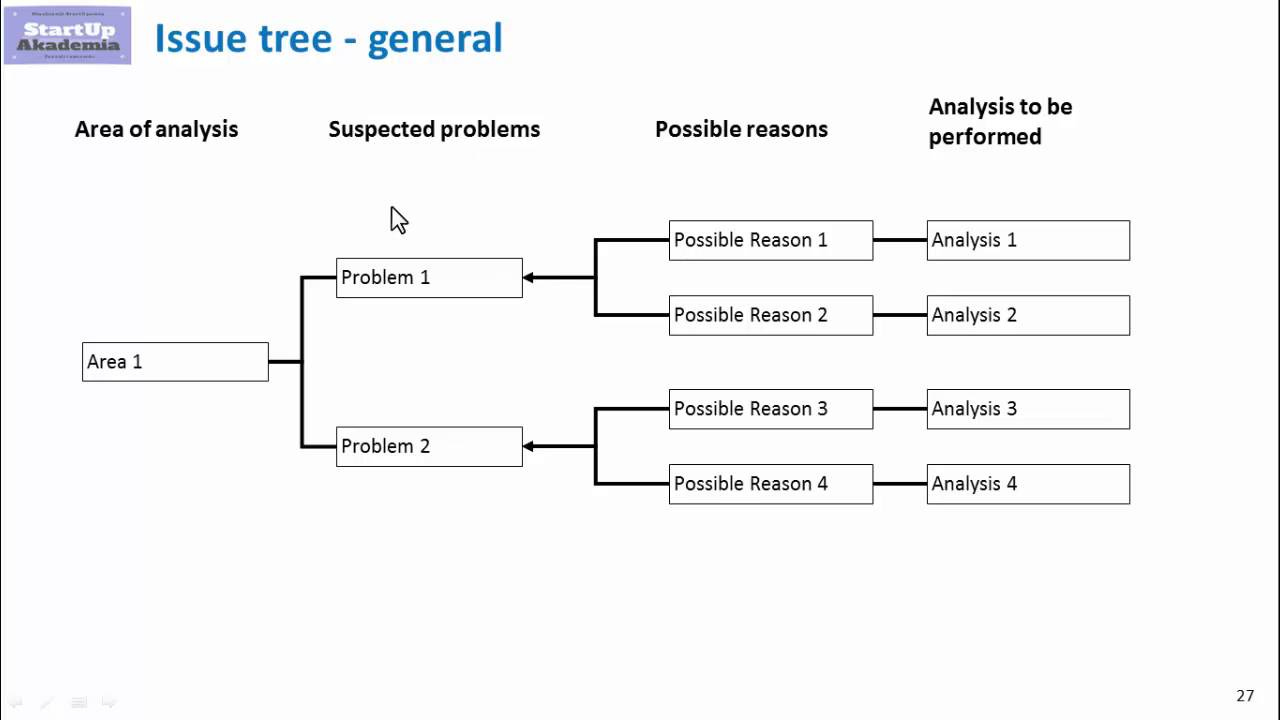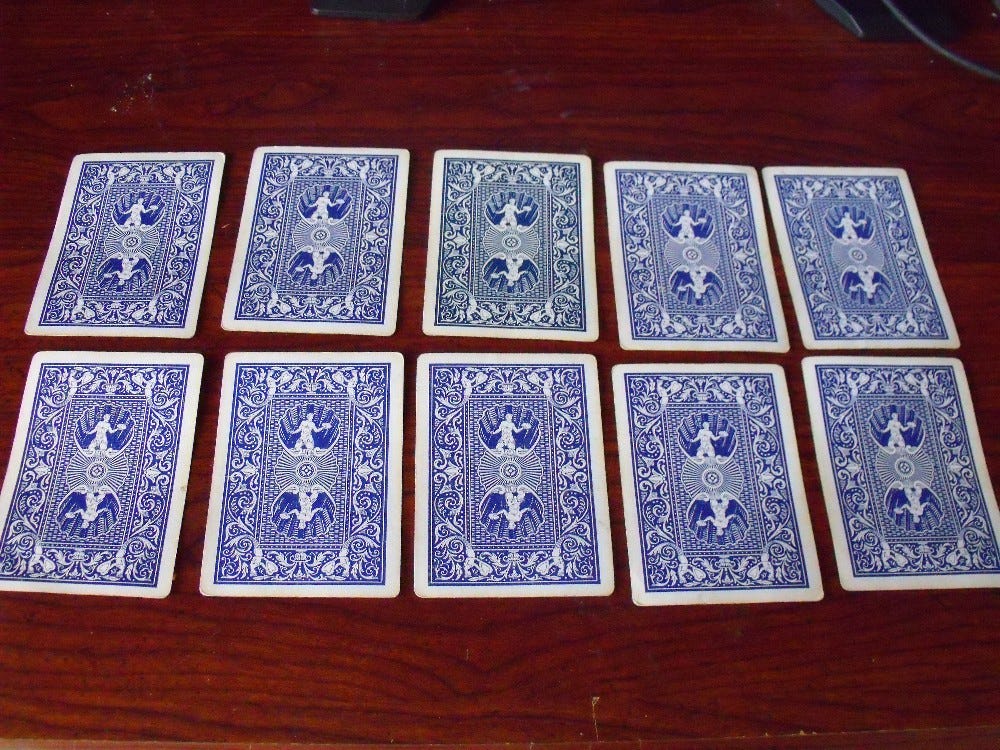This weekend we ran one of my favourite sessions of the year: real-world analysis. It sounds broad and business-y; that's because it is. Students learn about how to start solving big, complex problems in ways they aren't really taught in high school. We help them develop the skills of asking better questions and creating a framework for understanding complexity. This is a helpful starting point for our next session and the Global challenge which is coming up next week! I'm really excited about this one.
Before I get into the meat of the session, let's start with my intentions.
Start with the intention
After the hackathon last weekend, it was clear that students needed to level up both their problem-finding skills as well as their problem-solving ones. I know they are capable of so much more. So my intention going into the weekend was to level up their skills so the next problem they face, they'll feel more confident that they know how to find the problem. And not just confident, but they'll actually be able to better break down a problem. Solving it might require a different set of skills.
This intention helped ground how I approached the session – I paid more attention to how students were asking questions and I did my best to coach and re-direct during the activity. I felt I was more present and enjoyed the session more as a result.
I'm not going to pretend I've magically become a better coach from this shift in intentions, I know I have a lot I can improve. But by being aware of how I want to push students more, I can start to set that intention each day and start doing things differently.
When we go through life without intentions, we leave too much up to chance and end up taking a passive role in our life. If we want more out of something, we can't leave that to chance. We must be intentional about how we approach things. Being intentional was our mindset of the week. Yes, we have talked about it before, but it's amazing how quickly it fades from your memory. I have forgotten my own intentions at times during sessions or coaching calls, making them not as potent as they could be. Thankfully I was reminded this past week with some timely feedback and my intentions became clear once more.
Setting better intentions
When you're about to partake in something, big or small, ask yourself what you're trying to get out of it. It could be an activity (a date, a study session, a walk) or it could be your day or week. It could even be your job. Why are you even doing it?
If you don't know why you're doing it, then...why are you even doing it?
It's easy to get swept along in the rushing current of life. If don't take the time to chart a course and set our intentions, pretty soon we're out to sea wondering how we got there and what to do next.
Here's a small helpful framework if you're trying to be more intentional.
What is an area of your life you're not being intentional in? Think about why you care about that part of your life – what are you hoping it brings you? Ex: My relationship with my partner. She is important to me and spending quality time together brings me happiness.
How are you not being intentional? Ex: Every time we go out on a date, I habitually check Twitter on my phone.
What is it costing you to not be intentional? Ex: I feel like we aren't able to connect at a deeper level.
Set an intention for yourself. Ex: I want to be more present in our conversations when we have a date night.
What does being intentional look like? Ex: I will put my phone into DND and not check it until the date is over.
It's small but simple. You don't need to do this for everything in your life, but you can!
Your intention should be externally observable. If someone was watching you act, could they determine your intention based on how you behaved?
Why wouldn't you want to live intentionally?
Building MECE Pyramids
Most of us are used to operating based on intuition. This could be because we are familiar with a topic, confident in our abilities, or don't know any different. When it comes to school, a lot of the time it’s enough to be right. But once you start working in a professional setting, you need to be able to provide a strong rationale. Your thought process ends up becoming more important than the results.
When you're trying to solve a problem, you need to first gather the full context of what's going on. We usually do this by asking questions – to ourselves, to experts, to Google. The default is a shotgun approach of dumping out every question you have in a list and hoping you haven't missed anything. But what if there was a better way?
To begin, we covered the consulting framework of MECE.
It stands for Mutually Exclusive Collectively Exhaustive and its purpose is to create a logical structure of information so that you have fully mapped a problem space and know how to systematically solve a problem. Sounds like jargon? Let's make it easier to understand.
Imagine you're playing a matching game with cards.
You have a deck of cards all face down, and you flip over 2 cards trying to match their number. In our shotgun approach, you would just randomly flip over 2 cards at a time, hoping you got a match. You would keep going until you started to get lucky and get some matches, slowly whittling down the pile.
If we wanted to apply structure to solve this, we would organize the cards into a grid.
We would then create an approach where we go through each of the cards, column-by-column, taking note of which cards we flipped over and which we haven't. We would write down the position of the cards we flipped so that when we found a match, we could revisit it. This way we were sure we didn't keep turning over the same card (mutually exclusive) and that we turned over every card (collectively exhaustive).
What sounds easier?
The approach was created by Barbara Minto (a consultant at McKinsey at the time) who wrote a book called Pyramid Principle about it. I originally read it back in 2018 as I sought to improve my writing – it's presented as an approach to improving your writing and thinking1. She uses the MECE approach when creating a structure of a problem. You are able to break it down into its composite pieces, like an org chart. If you want a clean and clear structure, your categories need to be MECE.

By using a MECE approach, we can start to ask better questions. We can look at the branches of our MECE diagram and start to ask questions to better understand that section of the problem.
After learning about the framework and how it applies to a real business problem, students got to take it for a test drive during a live case study. I find these cases super fun – they are like mini mysteries where you get to play detective and try to determine where the problem lies. To be clear: I like them now way more than I did when I had to do them at school 😂.
Students were thrown into the deep end trying to solve a fairly tricky case. They were able to ask questions and start to identify problems, but for a lot of them, their problem-solving approach was weak. It wasn't enough to find the problem and disprove other potential causes. They got caught up in assumptions and wouldn’t delve deep into areas that signaled potential issues. Despite that, it was a superb learning experience — a few of our students said it was their favourite session so far.
I'll summarize the key lessons for you:
Ask for what you need – When solving problems at school, we get all the information we need. In the real world, we don't even know what we need to know! It's important to understand what would be helpful to solve your problem. I asked students during our last challenge: "imagine you had a piece of paper with every number you needed to prove your point, what would be on there?"
Prove what you believe – Students were making way too many assumptions from a single data point to the point of it being leaping to conclusions. Sales are down? It must be because the quality of ingredients changed which led to people leaving bad reviews and then people stopped shopping with us. ⁉️ If it's possible to get more information, do it! I want you to be able to prove what you believe.
It's as much what it is as what it isn't – Your goal is not to find the single right answer, there rarely is one. I want to be able to both prove what it could be as much as prove what it can't be. If there's an area of the problem you're not going to focus on, let me know why. Is it unimportant? Is it irrelevant?
Be specific with your questions – You can't rely on the other person to interpret your question. Instead of saying something like "tell me about X", what is it you want to know? It's really important to be intentional with your questions if you want a good answer. This will save time going back and forth as well. For every question you ask, you should first check what am I really asking here. I wrote more about this in the section Great questions are the key to knowledge.
Update your beliefs based on new information – During the conversations, students would run through their list of questions to ask instead of pausing and reflecting on each of the answers. Like a Bayesian, you should be updating your view with each new piece of information. How does if change your beliefs and subsequent questions?
This coming weekend, students will be testing their analytical skills with a full Harvard Business School case study. As always, I'll give you the debrief after.
✌🏼
I highly recommend it if your goal is to structure better arguments or to write and think more clearly.






